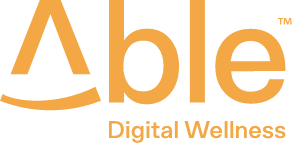A representative from Able Digital Wellness who operates a business full of support workers conducted a survey across multiple social media groups to deliver some findings and results here on carer fatigue or burnout.
They spent time focusing on disability support worker and carer forums, to see how familiar the cohort is with carer fatigue, their experience, and where to turn to address it. This is not written as an article delivered by psychologists, but from the point of view of someone who cares and has direct experience and interest in carer fatigue.
What is carer fatigue and what are the signs you might have it?
Sane Australia defines it as;
“The feeling of emotionally and physically exhaustion as a direct result of caring and/or supporting someone”.
The symptoms? Physical exhaustion, burnout, changes in appetite, changes in sleeping patterns, loss of motivation are just a few of the characteristics of someone experiencing carer fatigue. It should be mentioned, this is not just confined to those who offer care and support – this kind of burn out can happen in anyone, but we’re focusing on carers for the purposes of this.
It’s important to recognise too, that the characteristics of carer fatigue are also experienced in depressive episodes. Carer fatigue goes hand in hand with mental illness and should not be taken lightly.
The survey results are alarming:
-
90% of those we surveyed said they were familiar with carer fatigue
-
85% of those we surveyed said they were not familiar with services they could turn to for help with carer fatigue
First and foremost, something very important that needs to be acknowledged is it’s ok to say no. Boundary setting is healthy, though it can be difficult at the start, doing it will save unmeasurable amounts of stress and anxiety in the long run. If you’re not at your best, you’ll be unable to be the best to those around you, not just the person(s) you care for. Everyone.
Where do you start if this sounds like you?
If you’re confident that you don’t need support from others and acknowledge there are small changes you could make on your own but don’t know where to start, here’s a short list:
- Exercise – even just 30 minutes of walking per day
- Balanced and healthy diet – if you have access to an Able membership, try our recipes for yourself
- Increase your social activity – call on friends or coworkers to catch up for a snack or a walk on the sand
- Use a calendar to help you take more time for yourself – SELF-CARE IS NOT SELFISH. It’s essential.
- Make sure you’re getting enough sleep – if you’re not sleeping, try the headspace app before going to sleep, or speak with your GP or healthcare professional
- Take up a hobby, find something you enjoy and do it – surfing, touch footy, swimming, bush walking, bird watching, cross-stitch, whatever floats your boat!
- Reduce intake of alcohol, drugs, and caffeine – these are all proven to stimulate us and create issues with more than moderate intake
Peer Support
Social media groups / forums – if you’re not comfortable speaking with someone face-to-face, social media groups and forums created by carers and support workers, for carers and support workers is a great place to start. Able Digital Wellness created a Facebook group for this very reason, although uptake is slow, the approach is that connecting and relating with others like yourself can alleviate feeling alone and help you feel understood. You won’t be the first one to feel this way and won’t be the last.
Seek out a group or forum that works for you – read the description and see if it sounds good, join, interact and simply leave if it’s not your thing! The alternative is better though … once you find the right place to speak up or get the tips and support you need, you’ll find a weight lifting from your shoulders.
Counseling Support
If you feel comfortable to ask for help, your employer may offer an Employee Assistance Program. EAP’s are work-based intervention programs created to improve the emotional, mental, and general psychological wellbeing of employees and their immediate family members.
Speak with your employer about an Employee Assistance Program – there’s lots of info online from various companies around the country that you can share with your employer.
SANE AUSTRALIA – Counselling support, peer groups, real-life stories and blogs are just a few of the many resources available from Sane Australia.
Lifeline – Crisis support. If you’re experiencing a personal crisis, Lifeline offers 24-hour phone support.
Beyond Blue – providing information and support for anxiety, depression and suicide prevention for everyone in Australia.
These are just some of the tools you can use to help you be the best YOU that you can be. You might be the carer / support worker, but it’s important to not forget that you need to be cared for and supported too. Regardless of our intellectual and physical ability, it’s a natural human desire to be cared for and supported and though the type of support you get may be the difference, seeking it out really can make all the difference to you.
You can call Lifeline on 13 11 14 or Beyond Blue on 1300 22 4636 — 24 hours a day, 7 days a week. If you or someone you know is in crisis and needs help immediately, call triple zero (000).





Comments are closed.